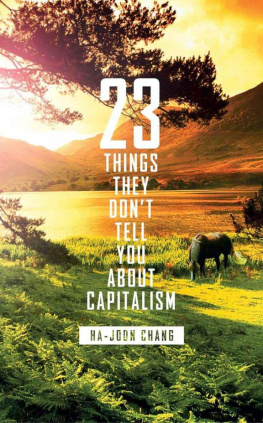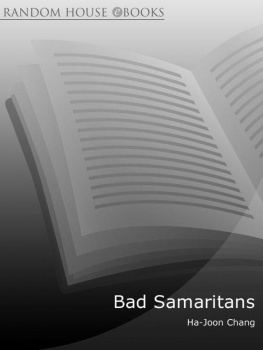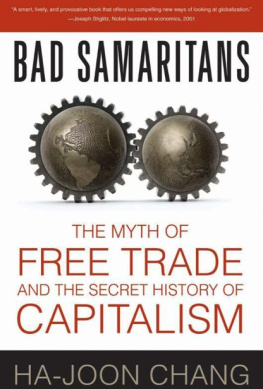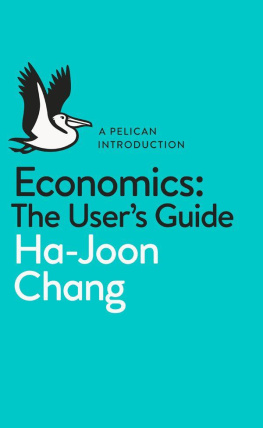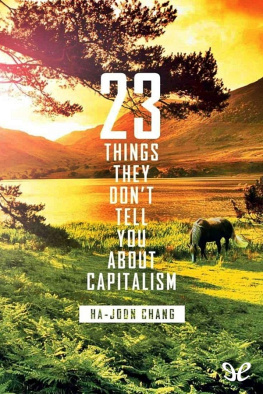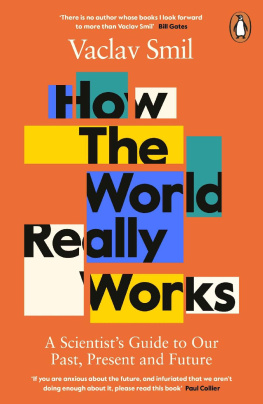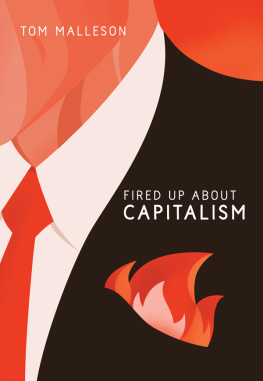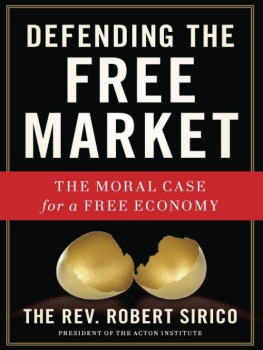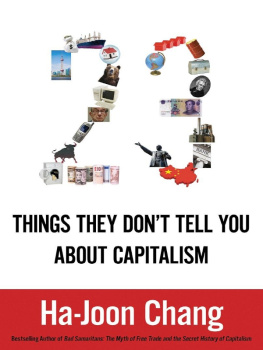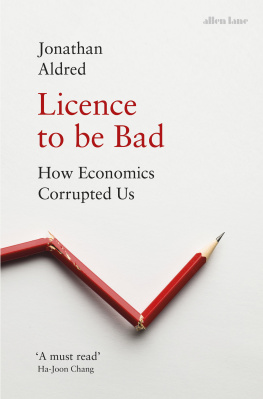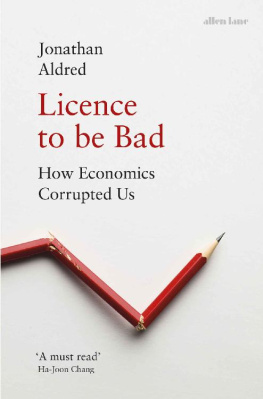23 Things They Dont Tell You about Capitalism
HA-JOON CHANG

ALLEN LANE
an imprint of
PENGUIN BOOKS
ALLEN LANE
Published by the Penguin Group
Penguin Books Ltd, 80 Strand, London WC2R 0RL , England
Penguin Group (USA) Inc., 375 Hudson Street, New York, New York 10014, USA
Penguin Group (Canada), 90 Eglinton Avenue East, Suite 700, Toronto, Ontario, Canada M4P 2Y3 (a division of Pearson Canada Inc.)
Penguin Ireland, 25 St Stephens Green, Dublin 2, Ireland (a division of Penguin Books Ltd)
Penguin Group (Australia), 250 Camberwell Road, Camberwell, Victoria 3124, Australia (a division of Pearson Australia Group Pty Ltd)
Penguin Books India Pvt Ltd, 11 Community Centre, Panchsheel Park, New Dehli 110 017, India
Penguin Group (NZ), 67 Apollo Drive, North Shore 0632, New Zealand (a division of Pearson New Zealand Ltd)
Penguin Books (South Africa) (Pty) Ltd, 24 Sturdee Avenue, Rosebank 2196, South Africa
Penguin Books Ltd, Registered Offices: 80 Strand, London WC2R 0RL , England
www.penguin.com
First published 2010
Copyright Ha-Joon Chang, 2010
The moral right of the author has been asserted
All rights reserved.
Without limiting the rights under copyright reserved above, no part of this publication may be reproduced, stored in or introduced into a retrieval system, or transmitted, in any form or by any means (electronic, mechanical, photocopying, recording or otherwise) without the prior written permission of both the copyright owner and the above publisher of this book
ISBN: 978-0-141-95786-9
To Hee-Jeong, Yuna, and Jin-Gyu
7 Ways to Read 23 Things They Dont Tell You about Capitalism
Way 1. If you are not even sure what capitalism is, read:
Way 2. If you think politics is a waste of time, read:
Way 3. If you have been wondering why your life does not seem to get better despite ever-rising income and ever-advancing technologies, read:
Way 4. If you think some people are richer than others because they are more capable, better educated and more enterprising, read:
Way 5. If you want to know why poor countries are poor and how they can become richer, read:
Way 6. If you think the world is an unfair place but there is nothing much you can do about it, read:
Way 7. Read the whole thing in the following order
Contents
Acknowledgements
I have benefited from many people in writing this book. Having played such a pivotal role in bringing about my previous book, Bad Samaritans , which focused on the developing world, Ivan Mulcahy, my literary agent, gave me constant encouragement to write another book with a broader appeal. Peter Ginna, my editor at Bloomsbury USA, not only provided valuable editorial feedback but also played a crucial role in setting the tone of the book by coming up with the title, 23 Things They Dont Tell You about Capitalism , while I was conceptualizing the book. William Goodlad, my editor at Allen Lane, took the lead in the editorial work and did a superb job in getting everything just right.
Many people read chapters of the book and provided helpful comments. Duncan Green read all the chapters and gave me very useful advice, both content-wise and editorially. Geoff Harcourt and Deepak Nayyar read many of the chapters and provided sagacious advice. Dirk Bezemer, Chris Cramer, Shailaja Fennell, Patrick Imam, Deborah Johnston, Amy Klatzkin, Barry Lynn, Kenia Parsons, and Bob Rowthorn read various chapters and gave me valuable comments.
Without the help of my capable research assistants, I could not have got all the detailed information on which the book is built. I thank, in alphabetical order, Bhargav Adhvaryu, Hassan Akram, Antonio Andreoni, Yurendra Basnett, Muhammad Irfan, Veerayooth Kanchoochat, and Francesca Reinhardt, for their assistance.
I also would like to thank Seung-il Jeong and Buhm Lee for providing me with data that are not easily accessible.
Last but not least, I thank my family, without whose support and love the book would not have been finished. Hee-Jeong, my wife, not only gave me strong emotional support while I was writing the book but also read all the chapters and helped me formulate my arguments in a more coherent and user-friendly way. I was extremely pleased to see that, when I floated some of my ideas to Yuna, my daughter, she responded with a surprising intellectual maturity for a 14-year-old. Jin-Gyu, my son, gave me some very interesting ideas as well as a lot of moral support for the book. I dedicate this book to the three of them.
Introduction
The global economy lies in tatters. While fiscal and monetary stimulus of unprecedented scale has prevented the financial meltdown of 2008 from turning into a total collapse of the global economy, the 2008 global crash still remains the second-largest economic crisis in history, after the Great Depression. At the time of writing (March 2010), even as some people declare the end of the recession, a sustained recovery is by no means certain. In the absence of financial reforms, loose monetary and fiscal policies have led to new financial bubbles, while the real economy is starved of money. If these bubbles burst, the global economy could fall into another (double-dip) recession. Even if the recovery is sustained, the aftermath of the crisis will be felt for years. It may be several years before the corporate and the household sectors rebuild their balance sheets. The huge budget deficits created by the crisis will force governments to reduce public investments and welfare entitlements significantly, negatively affecting economic growth, poverty and social stability possibly for decades. Some of those who lost their jobs and houses during the crisis may never join the economic mainstream again. These are frightening prospects.
This catastrophe has ultimately been created by the free-market ideology that has ruled the world since the 1980s. We have been told that, if left alone, markets will produce the most efficient and just outcome. Efficient, because individuals know best how to utilize the resources they command, and just, because the competitive market process ensures that individuals are rewarded according to their productivity. We have been told that business should be given maximum freedom. Firms, being closest to the market, know what is best for their businesses. If we let them do what they want, wealth creation will be maximized, benefiting the rest of society as well. We were told that government intervention in the markets would only reduce their efficiency. Government intervention is often designed to limit the very scope of wealth creation for misguided egalitarian reasons. Even when it is not, governments cannot improve on market outcomes, as they have neither the necessary information nor the incentives to make good business decisions. In sum, we were told to put all our trust in the market and get out of its way.
Following this advice, most countries have introduced free-market policies over the last three decades privatization of state-owned industrial and financial firms, deregulation of finance and industry, liberalization of international trade and investment, and reduction in income taxes and welfare payments. These policies, their advocates admitted, may temporarily create some problems, such as rising inequality, but ultimately they will make everyone better off by creating a more dynamic and wealthier society. The rising tide lifts all boats together, was the metaphor.
The result of these policies has been the polar opposite of what was promised. Forget for a moment the financial meltdown, which will scar the world for decades to come. Prior to that, and unbeknown to most people, free-market policies had resulted in slower growth, rising inequality and heightened instability in most countries. In many rich countries, these problems were masked by huge credit expansion; thus the fact that US wages had remained stagnant and working hours increased since the 1970s was conveniently fogged over by the heady brew of credit-fuelled consumer boom. The problems were bad enough in the rich countries, but they were even more serious for the developing world. Living standards in Sub-Saharan Africa have stagnated for the last three decades, while Latin America has seen its per capita growth rate fall by two-thirds during the period. There were some developing countries that grew fast (although with rapidly rising inequality) during this period, such as China and India, but these are precisely the countries that, while partially liberalizing, have refused to introduce full-blown free-market policies.

